I recently viewed this interesting video for my own edification. Many points came to mind. 1
1) One opinion expressed was that agnostics lack belief in God, therefore agnostics are atheists.
Hmmmm....
That personal subjective view overlooks the fact that agnostics also lack belief in atheism. If they didn't lack belief in atheism too, they would call themselves atheist, in lieu of agnostic. Agnostics suspend committing to atheism and theism due to not knowing, hence they can not be deemed atheist. 'Atheist" is not a broader umbrella term that includes "agnostic".
2) Armin stated at one point that "lack of evidence is enough for lack of belief..." But "lack of evidence" is a personal subjective evaluation. People are not required to accept such subjective, out of the blue claims as "a lack of evidence" Prove there is a lack of evidence.
3) Around minute 45 Todd states there is a difference between belief and knowledge, as if they are in separate compartments. I see no evidence for such separate compartments. Tod's belief in the separation of belief and knowledge was an idea floated and bandied about some 100 years ago, and was virtually abandoned by 1950. By the early 1970's it had been thoroughly trounced and no serious thinker backs that idea any more.
In order to know something, you must believe it, and it must be true. I have trouble coming up with an example of something someone knows that they also disbelieve, or that they don't believe. It is very obvious to me, that people believe things they think they know. I see no dividing line between belief and knowledge. In fact, you must believe first before you can know.
Earlier in the video, Michael made some comments on belief that appear to be on the right track. He is attempting to educate atheists that you do have beliefs and you act on your beliefs. See around minute 18 in the video. If there were more atheists such as Michael, I suspect there would be less confusion and incoherence in this forum.
4) Andrew. he comments that if you say there is no God, then you shift the burden of proof to yourself. I believe this is correct. Many atheists seem to uncritically accept the (unproven) claim, " there is no evidence for God...". that claim is just a subjective belief.
5) Makeesha comments that belief/knowledge issue 'keeps tripping us up.'
She is correct. Andrew, Makeesha and to a degree, Michael are on the right track.
Michael refers to a Qualia Soup video on epistemology that presents a partly clarifying and partly problematic perspective. More on that in a different thread.
Subscription Note:
Choosing to subscribe to this topic will automatically register you for email notifications for comments and updates on this thread.
Email notifications will be sent out daily by default unless specified otherwise on your account which you can edit by going to your userpage here and clicking on the subscriptions tab.


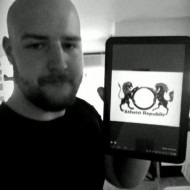
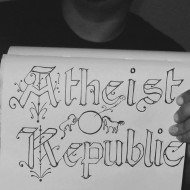

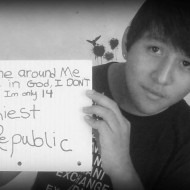

















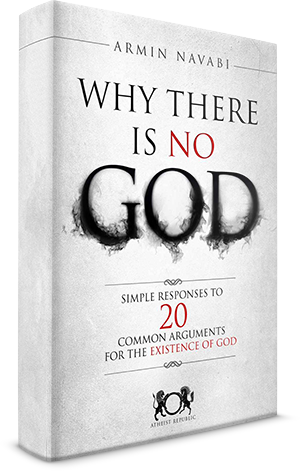
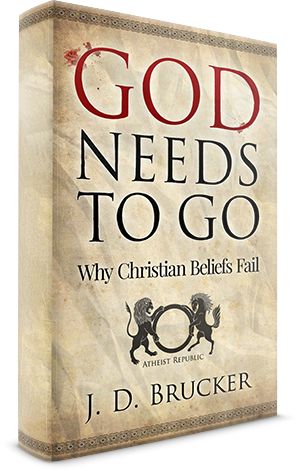



@Apollo
Do you believe in Apollo (the god idea), Zeus, Thor, Ra? You don't? Why not? What makes you think those god ideas are wrong, but your particular god idea is right, how do you seperate them?
That is a fair question.
Coherence theory of truth.
https://en.wikipedia.org/wiki/Coherence_theory_of_truth
My "god idea" as you put it, is coherent with what I know.
Argument from assertion fallacy, again. Why do theists not know this is fallacious?
https://rationalwiki.org/wiki/Argument_by_assertion
Argument by assertion is the logical fallacy where someone tries to argue a point by merely asserting that it is true, regardless of contradiction. While this may seem stupid, it's actually an easy trap to fall into and is quite common.
This is not the same as establishing initial axioms on which to build a framework of logic or ideas.
1. In my reply to a question I'm not arguing a point, so your main comment is irrelevant.
2. I'm awaiting your initial axioms on which you have built a framework for your ideas.
Sheldon "Argument from assertion fallacy, again. Why do theists not know this is fallacious?"
You didn't address your fallacy here, and it is a claim, so to now assert that you're not arguing a point is absurd note the words "I know" at the end of your sentence. Either way you didn't remotely address my refutation of your claim.
My post was a response to an assertion by you, the initial claims was yours, here it is verbatim.
That is a bare assertion, and therefore an argument from assertion fallacy.
Apollo, you wrote, “My "god idea" as you put it, is coherent with what I know.”
Okay. I believe you.
What YOU know, however, is different from what everyone else knows as we are all individuals. So if others have god ideas coherent with what THEY know, then could it follow that everyone has their own god? If not, please explain how, if everyone is an individual, how can their gods be the same?
Be careful with your answers. We already know that there are many, many claims for differing gods.
Any claim to knowledge is worthless without supporting objective evidence. All you have offered is a bare assertion, an argument from assertion fallacy. I could easily respond with "I know you're wrong", how is this worthy of being called debate.
The problem is this is standard fare from theists who come here. Next it will be evasion, with subjective claims for experiential personal "evidence" with equally vague and facile claims to possess esoteric truth. This usually goes on for a while depending on how stubbornly both parties can bothered to be. Then the theist accuses the atheists of ignoring the "evidence" they have already supplied. Refuse to be further drawn on that claim, and congratulates themselves no doubt, though what they feel they've achieved is never revealed of course.
But I will play along for know. Please enthral us all with your knowledge that you (subjectively) find coherent with your god claim.
Knowledge can be tested, and must be falsifiable to be worthy of the name. So tread cautiously would be my advise FWIW.
@ Apollo
You did not answer the question.
"Do you believe in Apollo (the god idea), Zeus, Thor, Ra?"
This is simple, yes, or no.
Sure, if you want to take it to its epistemological extreme, no one can ever absolutely know anything. If you want to use that as a gotcha, be my guest.
As we use the terms in reality, knowledge is a subset of belief. They are distinguishable.
I know I am typing this right now. I know I have shoes on. I know I'm married. I know I have the world's best cat.
Oops, think I overstated that last one.. I believe I have the world's best cat, can't actually know that one, but I can't imagine a better cat.
I believe Donald Trump is an asshole, figuratively. I believe theists are ignorant about this particular subject. I believe it is extremely unlikely that anything supernatural exists.
So, things I know and things I believe. The things I believe could be true or not true. For the things I claim to know, it would take some kind of supernatural intrusion or a physiological extreme, such as my brain is not functioning, for them to be not true.
Your diatribe notwithstanding, you simply have no standing.
1. you claim that you know you have shoes on and that knowledge is separate from belief. then
2.
you undermine you own position by stating your brain may not be functioning and in that case you believe you have shoes on when you don't.
Given that, am I supposed to accept that you know you have shoes on? Am I supposed to accept that on faith, just because you say so? Prove you have shoes on. For all I know, your brain is not functioning. Presently, if I say I know you have shoes on, that's just my belief, based on your claim. And since your brain might not be functioning, your claim you have shoes on is your belief.
Also, I think you are conflating different types of knowing. In the 1950's scientists knew man evolved from the apes. But current cutting edge science isn't so sure. The facts, and what people know changes. Believing and knowing you have shoes on, isn't the same type of knowledge as in anthropology, evolution, cosmology, and other areas of knowledge.
I can say I believe in (some form of) abiogenesis. Can you? or do you shy away from that word "believe"?
I can say I know some form of abiogenesis was the origin of living things. Can you say you know that too? Knowing that life began with some type of abiogenesis isn't the same type of knowing you have shoes on. One must believe in abiogenseis before one can know it, unless, of course, you have some facts to prove otherwise.
Incidentally, I don't use the term "supernatural". Why would I use a Middle Ages term based on a false dualistic view of reality?
Having pursued your diatribe, and noted you undermined your own position, it is apparent your view is incoherently circular.
There is a thread here,
https://www.atheistrepublic.com/forums/debate-room/what-separates-belief...
in which an atheist proposed that he knew which, Pepsi or Coke, had the most calories. His proposal ended in failure as it turned out he believed one had more calories than the other. You are welcome to pursue the thread and show how, precisely, facts and beliefs are separate. In the meantime, I take it you believe you have shoes on, so your knowledge you have shoes on is a fact, like the fact that man came from the apes, is one that could change.
Do you have any comprehension skills, any at all??????????????
"you claim that you know you have shoes on and that knowledge is separate from belief."
If you can read, I said knowledge is a subset of belief. Therefore, and I'm typing slow so you might understand, the claim that I have shoes on is knowledge, and, wait for it, again, I'm typing slow for you, also a belief.
I hope that wasn't too fast for you, let me know, I'll try to type slower next time.
The rest of your incoherent manifesto is just garbage based on faulty assumptions and an absurd attempt to shift the burden of proof, pretty typical apologist idiocy.
Apollo, you wrote, “Given that, am I supposed to accept that you know you have shoes on? Am I supposed to accept that on faith, just because you say so?”
Well, you can actually look at his feet. His feet can be seen, touched, maybe even smelled. Can you touch, see, or smell your god?
@apollo: So you are going to turn out to be one of those silly apologetic trolls. SAD, so SAD.
1. He did not claim knowledge is separate from belief. He clearly told you that knowledge is a subset of belief. Basic set theory. Knowledge is distinguishable from belief. We distinguish it with FACTS, EVIDENCE, REPEAT-ABILITY, MEASUREMENTS, etc...
2. No he does not undermine his own potion. GO BACK TO #1. Knowledge is verifiable.
3. Hard solipsism is a waste of time. It gets you nowhere. The world I live in is the only world I have. If it can not be known or not, it must still be treated as if. I'm not interested in your BS.
@ Apollo
"Given that, am I supposed to accept that you know you have shoes on? Am I supposed to accept that on faith, just because you say so? Prove you have shoes on."
Prove there is a god.
Are theists not allowed to use dictionaries or something?
Agnosticism
Noun
1. The belief that it is not possible to know whether God exists or not.
Do you generally believe things you can know nothing about? How about invisible unicorns, are they real then?
Atheism
Noun
1. Disbelief or lack of belief in the existence of God or gods.
A quick question seems apropos, is it possible to know anything about something that does not exist? Do you generally believe things you can know nothing about? If so I would appreciate a list of these to see if you are, like all the other theists who come here, using this argument from ignorance fallacy to defend just the one belief. I think if this list has just the one belief in it, then the inference doesn't need hammering home yet again. Can you objectively disprove the existence of all other deities and all other versions of your deity, or at the very least demonstrate in some objective way how your deity is any different from all the others you disbelieve in.
You see theists use this argument they have read from some zealous apologist quite a bit these days, as it appears to be in vogue, but they seem to be demanding evidence from atheists for the non existence of just their deity, when they don't themselves require it for all the other deities they don't believe are real. Such an obviously biased position I think speaks for itself. At least my atheism sets one objective standard.
1. One thing I note right off the bat is your personally and subjectively chosen definition of agnostic commences with the phrase, "The belief..."
Many atheists claim they have no beliefs. Are you one of those? if you are, will you prove you have no beliefs?
2. The definition of agnostic doesn't say agnostics disbelieve God exists, they just claim, unproven of course, that one can't know. And so far, I have not encountered an agnostic who elucidates what they mean by "know".
3. the definition of atheist clearly states "disbelief".
Obviously atheists disbelieve (in unproven fashion) while agnostics claim one can not know. It implies that atheists know their disbelief is true, while the thing that agnostics claim is true is that one can't know. If agnostics disbelieved in God, rather than suspending judgement due to lack of knowledge, they would call themselves atheist instead of agnostic.
3. Is it possible to know anything about something that does not exist? To answer that you would need to give an example of something that does not exist. Then I will see if I know anything about it.
4. At least your "atheism sets one objective standard." Which is? Since it is "one objective standard" it should be easy for you to elucidate.
Another blatant lie from Apollo, I quoted the dictionary definition verbatim. And of course it is a belief, as all beliefs are the affirmation of a claim. However a belief can also be an objective fact. I believe the world is not flat, I believe this because I now it to be an objective fact. You seem less sure about that one, nevertheless.
I don't believe you, as I have only ever heard one atheist claim this, on here, and he was quite clearly barking mad. It is impossible to hold no beliefs, beliefs are how our minds interact with the physical world, we start accruing beliefs from the moment we are born, and literally could not function without doing so.
" The definition of agnostic doesn't say agnostics disbelieve God exists, they just claim, unproven of course, that one can't know. And so far, I have not encountered an agnostic who elucidates what they mean by "know"."
The definition of agnosticism is the belief that nothing is known nor can be known about the nature and existence of god. Anyone can get this from a cursory Google search, so why you think you can misrepresent it is baffling.
agnostic
noun
a person who believes that nothing is known or can be known of the existence or nature of God.
know
verb
1. be aware of through observation, inquiry, or information.
I am an agnostic only as far as the definition of any deity makes the concept unfalsifiable, I am and must be an agnostic about all unfalsifiable claims, because i can't know if they are true, and they cannot be falsified EVEN IF THEY ARE FALSE, I disbelieve all such claims, as ti believe them, the only alternative position, is absurd to me.
Yes it does, well done you have finally stopped misrepresenting it as a belief or claim anyway, this is progress. I cannot know no deity exists if they are represented as unfalsifiable concepts, but I disbelieve the they do, I don't know what theists hope to gain by misrepresenting atheism and agnosticism as mutually exclusive positions, but they are not.
1. Can you prove invisible fairies don't exist?
2. Do you believe invisible fairies exist?
Pretty simple really, and I cannot dumb this down any more than that.
Sigh, I do call myself an atheist as I disbelieve in the existence of any deities, I am also an agnostic as in it's broadest definition the concept of a deity cannot be disproved, neither can invisible fairies, do you believe they exist? If not then you are both agnostic about their existence and disbelieve they exist, ffs this really is the simplest stuff, and I am at a loss as to what theists like you hope to gain from such pointless and dishonest semantics.
That has to be one of the stupidest things you've written thus far. If something doesn't exist then there is axiomatically nothing that can be known about it, if the concept is unfalsifiable we cannot falsify it even if it is false, that;s what the phrase unfalsifiable means ffs. I gave you an example of unfalsifiable concept, invisible fairies, again I ask can you prove these don;t exist? Do you believe they exist? See how easy it is to create unfalsifiable concepts, the idea that being unable to falsify something makes its existence credible is a logical fallacy. An argumentum ad ignorantiam fallacy.
I have elucidated this, that I only believe claims for which sufficient objective evidence can be demonstrated, this applies to deities the same as it does to all else. Thus it is an objective standard, how I personally feel about the concept or claim is irrelevant.
So is believing based on personal experience ALONE, so unless you can demonstrate some objective evidence for any deity, then your rationale seems something of an own goal. What's your default position on invisible unicorns by the way, can you evidence they don't exist, or is your disbelief in them simply based on "lack of evidence" and "a personal subjective evaluation"?
Hmm...
So you can a) prove invisible unicorns don't exist, b) believe invisible unicorns are real, or c) are making an absurdly biased argument for your belief in a deity.
Tell me Apollo, can you demonstrate any objective evidence for the existence of any deity?
Now tell me Apollo, how many beliefs that from no part of your religious beliefs, do you hold without any supporting objective evidence?
I don't believe your argument form assertion fallacy, demonstrate some evidence for it please. Then explain why what many people think is remotely relevant, as this sounds like an argumentum ad populum fallacy, combined with poisoning of the well fallacy to me. You are simply leaping from assertion to assertion, and using every informal fallacy there is to prop them up, in my experience on here a lot of theists do this, the evidence litters these thread, do please avail yourself of that evidence. You could start with your own poor display here and elsewhere in a very short period.
I am an atheist, and for the same reason I disbelieve anything else, no one has demonstrated any objective evidence for the existence of a deity. What's your reason for believing one deity is real, and all the rest false? Can you demonstrate any objective evidence that yours is any different to the others?
1. I don't believe unicorns really exist, so if they did I couldn't know it. You don't believe they really exist, so we agree. since you don't believe they exist, if they did, you couldn't know it. Lets drop the silly unicorn stuff. Its just a red herring devised by a Sophist atheist.
2. You are an atheist. You disbelieve in a creator God. So what? That's part of your personal subjective worldview. You are entitled to your worldview, while others are entitled to theirs. Proving your disbelief is valid and reliable is another matter. Feel free to "objectively" prove your disbelief is legitimate.
3. Can I demonstrate any objective evidence for any deity? first of all, I'd need to know your criteria for objectivity that you claim (in unproven fashion) to apply to your own world view. Then I'd be able to evaluate the matter.
I don't believe deities really exist, so if they did I couldn't know it. Glad to see you are now an atheist.
You will have to explain what you mean by "stuff", but until you can answer my objections, or offer some objective evidence that the deity you believe exists is any more real than an invisible unicorn, then no, I will not drop it. Sorry if sound rational arguments make you uncomfortable, but this is an atheist debate forum.
As an atheist, I disbelieve in any and all deities. It's in the dictionary, it is no more a subjective worldview than your disbelief in all the thousands of deities you disbelieve, and your disbelief in unicorns and fairies. Unless of course you can demonstrate some objective evidence for those things you disbelieve?
That is an argumentum ad ignorantiam fallacy, it is the most used common logical fallacy that theists resort to. Can you prove your disbelief in invisible unicorns is "valid and reliable"? or are you setting a double hypocritical standard for atheists. Do you think the atheists on this forum will fail to notice you have evaded questions?
Objective
adjective
1. (of a person or their judgement) not influenced by personal feelings or opinions in considering and representing facts.
Come off it, do you really think such shameful evasion will go unnoticed?
@Apollo: I don't believe unicorns really exist
Why would you believe that without evidence? At least two types of unicorns do exist. The first is the Indian rhinoceros (Rhinoceros unicornis), and the second is a privately owned venture company with a capital value of at least one billion dollars.
As far as gods are concerned, before we can start looking for proof of their existence or non-existence, we need a definition of what they are. Can you list some specific characteristics of gods and their behavior? What traces do gods leave through their actions?
The interesting question is not whether gods exist, but why people like you need gods to exist.
@Apollo
So, you take everything you hear, disregard demonstrable evidence things you hear as no more signficant than things that cannot be demonstrated with evidence, and decided that it all works and that is your conclusion?
Do you ever worry that the conclusion you come to based on everything you know, a conclusion based on information with no filter on if what you heard (that has no demonstrable evidence) may be wrong? Even a little? Or are you sure of your conclusion based on all you been told?
I think you misunderstand this. Its not a conclusion. Rather it is "coherent with" or similarly, "comports well with".
For example, in the 1950's the belief that man evolved from the apes (and or monkeys) was coherent with/comported well with the fossil record. It is a matter of believing what is coherent with what is known.
it isn't a matter of, in linear fashion, deducing a conclusion like Sherlock Holmes. Linear reasoning is abandoned in favor of reciprocal reasoning. In reciprocal reasoning, there is no conclusion as such.
Too, it is important to distinguish between a necessary implication, and a possible implication. So, for example, back when it was believed man came from the apes, some might have insisted it is a necessary conclusion based on "the facts". In reality, and in retrospect, it was only a possible conclusion based on the facts at hand.
Once on delves into such real examples from science one gets a better handle on what this type of knowing is and isn't. All the stuff about Unicorns and pet dragons that some atheists prattle on and on about are just rabbit holes the divide into countless other rabbit holes leading nowhere meaningful. Studying real examples from the history of science has a lot more potential for true understanding of knowing.
In an up coming thread on an atheist view of the origin of the universe might make this more clear. In that thread it will be apparent that the atheist view of the origin of the universe is not a conclusion based on evidence, and neither is belief in God at least not in the sense of a necessary conclusion.
This is a common creationist mistake, and at no point did the scientific theory of evolution evidence humans had evolved from monkeys. Humans ARE apes, our taxonomy puts us in the family of great apes that includes Gorillas, Chimpanzees, Bonobos, Orangutans, Gibbons, and of course humans. And of course the fossil record represents part of the massive body of objective evidence that supports the scientific facts bout species evolution. Your word salad won't change this, or the fact you have failed to demonstrate any objective evidence for any deity.
The evidence puts this scientific fact beyond any reasonable doubt. All scientific facts remain tentative, no matter how well evidenced, the method must leave all facts open to revision in the light of new evidence, or else it could never correct an error, just as man made religions have been trapped adhering to errant nonsense they claim is infallible. However the likelihood evolution will be substantially reversed is effectively nil, as all the evidence supports it. It's about as likely as us finding out the earth is at the centre of the universe and flat after all.
This little disingenuous word salad you've dished up is tired old piece of religious rhetoric, and we have all seen it tried many many times before. Humans are apes, they also evolved from ape-like ancestors.
Your claims about epistemology are a risible smokescreen, to avoid addressing the fact that you can't demonstrate a single shred of objective evidence for any deity.
Another facile red herring, the atheist view of the origins of the universe simply disbelieve it was conjured into existence with unevidenced and unexplained magic by an unevidenced deity from a bronze age superstition. And the reason atheist disbelieve this is that there is zero objective evidence for it, and the risible superstition that claims it has no explanatory powers whatsoever.
You might have saved yourself the trouble and simply read one of the many threads dismantling this risible line of apologetics already.
You'll be plagiarising some tired version of the fallacious Kalam Cosomological argument next, pretending it evidences a deity.
The universe exists, as an objective fact, natural phenomena exist as an objective fact, since you're the one adding magic and deities, and implying it is necessary to appeal to superstition in order or the universe to exist, it is for you to properly evidence your claims, beliefs and assertions. As an atheist I have none about the origins of the universe, and believe only what can be objectively evidenced, as with all claims.
Again we can't help noticing you haven't told us how many beliefs outside of your religious beliefs, you hold without a shred of objective evidence?
Could it be you're championing just one belief with this nonsense?
@ALL: It's time for Sheldon to shine once again with his remarkable brand of point by point patience. However; if we all hang around long enough he will eventually 'LOSE HIS SHIT' and then he makes some of the most humorous posts on the site! They are most definitely wroth waiting for. YOU GO SHELDON!!!
You're being overly generous, but I thank you anyway.
Aw bless, someone just disagreed with that harmless innocuous post. Whoever could it be, Holmes?
@Apollo
So...if it is "coherent" or "comports well" to you (whatever that means to you) you accept it. Point I am driving at, is it seems like the reality of the idea that someone told you about (your god idea) you accept because it seems coherent to you. So if I come up with a coherent argument that every mention of god is really talking about me. Are you going to accept me as your god idea and not question it because it is coherent?
Uh... fossil records = demonstrable evidence. I have yet to see a god idea have anything like "fossil records."
There is that word... "believe." Why should I believe what you believe when you can not demonstrate it?
Yeah I do not do that eithir. Way too much effort. In my mind, eithir you accept unevidenced ideas (for whatever reason) or you don't. I find most people have a few ideas they do this too. And quite often are not even really aware they are doing it. (Especially if they are highly motivated to accept the unevidenced idea, of which most theist are.)
What is the point of thinking a lot about something when you decided that there is no conclusion? Is it just idle thought while bored?
No argument there. However, all the data, facts, demonstrable evidence, (like fossil record) all so far point one conclusion, a conclusion that 99% of the scientist that study the subject all generally agree with on all the important major points.
These are examples. Seems you are not interested in examining understanding these examples. Understood. I will certainly stop on my end.
Agreed, one caveat, books, any books, if they cannot be verified, cannot be considered accurate history. Ever heard of the term "history books are written by the victors" ?
I see you are still thinking of atheist like a religion, I understand why you would do that, you probably can only relate to an atheist through the view of the lenses of your religion. I would state my own personal view, but it does not seem like you are interested.
Sort of repeating yourself here, along with the same mistake. There is no "atheist view" you are in error here. Or are you going to start making all the sweeping statements and rules about atheist, as a theist on an atheist website. I certainly would not put it past you at this point.
@Apollo
"it isn't a matter of, in linear fashion, deducing a conclusion like Sherlock Holmes."
Point of order ;Sherlock Holmes did not use deductive reason. He used inductive reasoning.
---Do carry on with your sophistry .Commonly used by clever apologists .Not saying you're a sophist, only that I think that is the type of argument you are using. I'm sure you're perfectly sincere.
I welcome correction by a peer if I am factually incorrect,
(((((((((((((((((((((((((((((((((((((((((90)))))))))))))))))))))))))))))))))))))))))))))))
"Deductive reasoning is a basic form of valid reasoning. Deductive reasoning, or deduction, starts out with a general statement, or hypothesis, and examines the possibilities to reach a specific, logical conclusion, according to California State University. The scientific method uses deduction to test hypotheses and theories. "In deductive inference, we hold a theory and based on it we make a prediction of its consequences. That is, we predict what the observations should be if the theory were correct. We go from the general — the theory — to the specific — the observations," said Dr. Sylvia Wassertheil-Smoller, a researcher and professor emerita at Albert Einstein College of Medicine.-------------"
"Inductive reasoning is the opposite of deductive reasoning. Inductive reasoning makes broad generalizations from specific observations. Basically, there is data, then conclusions are drawn from the data. This is called inductive logic, according to Utah State University.
"In inductive inference, we go from the specific to the general. We make many observations, discern a pattern, make a generalization, and infer an explanation or a theory," Wassertheil-Smoller told Live Science. "In science, there is a constant interplay between inductive inference (based on observations) and deductive inference (based on theory), until we get closer and closer to the 'truth,' which we can only approach but not ascertain with complete certainty."
Inductive reasoning is the opposite of deductive reasoning. Inductive reasoning makes broad generalizations from specific observations. Basically, there is data, then conclusions are drawn from the data. This is called inductive logic, according to Utah State University.
"In inductive inference, we go from the specific to the general. We make many observations, discern a pattern, make a generalization, and infer an explanation or a theory," Wassertheil-Smoller told Live Science. "In science, there is a constant interplay between inductive inference (based on observations) and deductive inference (based on theory), until we get closer and closer to the 'truth,' which we can only approach but not ascertain with complete certainty."
https://www.livescience.com/21569-deduction-vs-induction.html
sophistry
noun [ U ] formal
UK /ˈsɒf.ɪ.stri/ US /ˈsɑː.fɪ.stri/
the clever use of arguments that seem true but are really false, in order to deceive people
(Cambridge dictionary)
[person info removed - Nyarlathotep]Pages